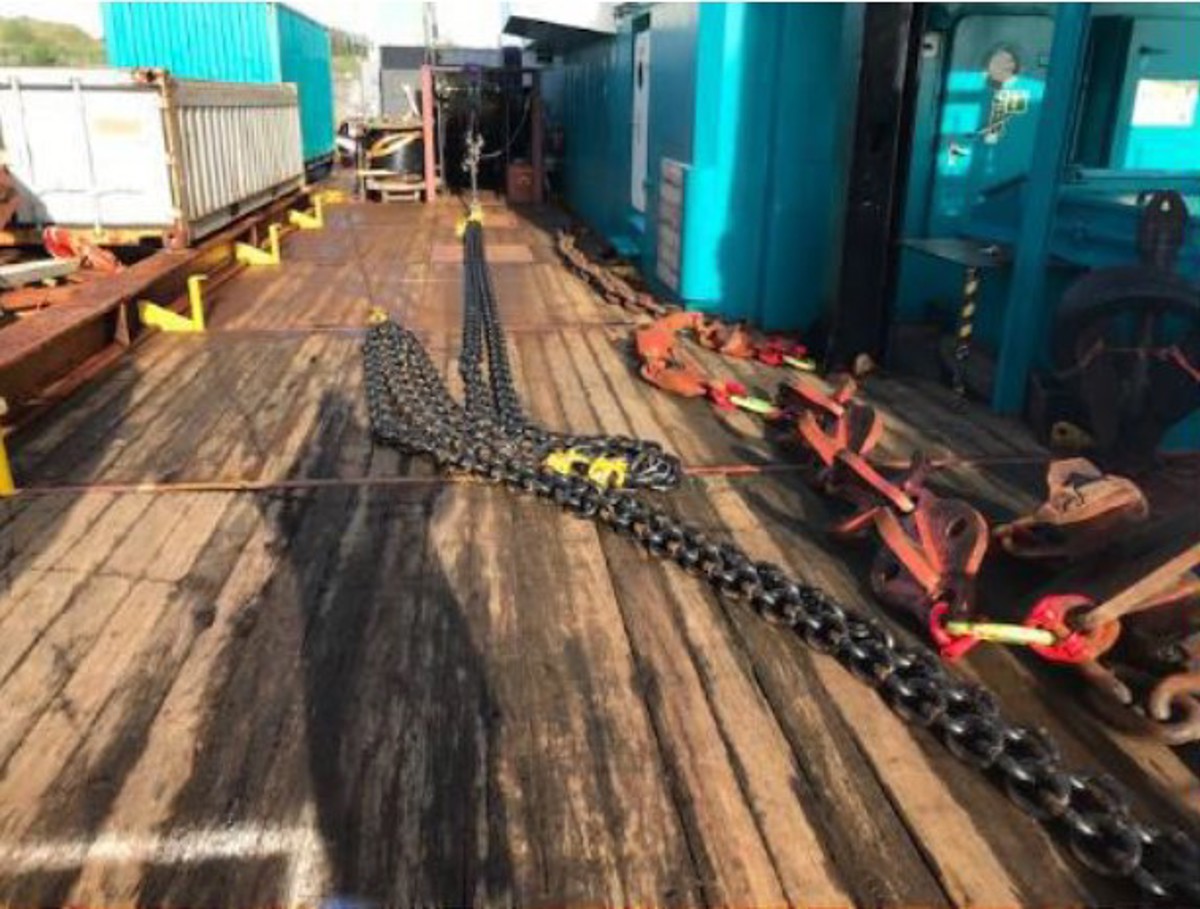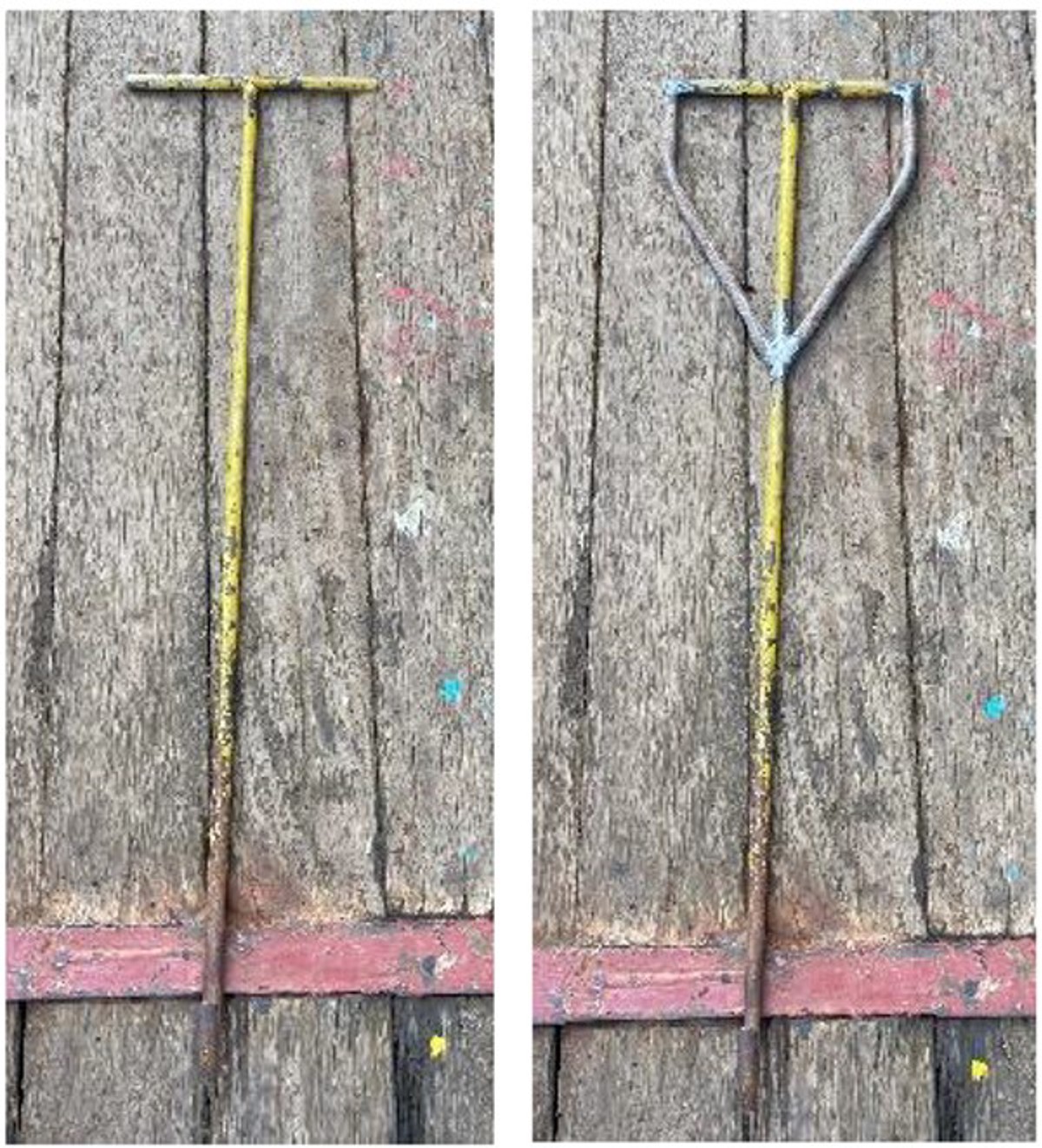Man overboard from anchor handler tug
- Safety Flash
- Published on 14 July 2022
- Generated on 4 March 2026
- IMCA SF 17/22
- 2 minute read
Jump to:
A crew member lost balance and fell overboard.
What happened?
A sub-contracted anchor handling tug was performing grapnel run activities using a long chain as a grapnel. Whilst overboarding the chain, a crew member lost balance and fell overboard.
What went right?
- The vessel crew’s MOB response was exemplary and swift. The person in the water was recovered to deck within three minutes using a nearby life buoy with rope.
- Because rescue equipment was readily available and because the crew had practiced MOB situations in drills, the crew member was recovered quickly and safely.
What went wrong?
The first part of the chain was being over boarded using a hook with a T-bar across the top. When the chain started sliding overboard, the hook wasn’t released quickly enough and at the same time the T-bar caught on the life jacket worn by the crew member, causing him to lose balance and stumble. This ultimately led to the crew member falling overboard.
- After the incident the design of the hook was modified to prevent it from getting caught.
- Also, the overboarding process was changed to using the crane, eliminating the use of such a tool.
Lessons learned
- Do your drills, learn your skills! They may become necessary.
- Risk assessment: can we do a task in a smarter, safer way?
- Manage sub-contractors and get involved in their work methods and risk assessments.
- Review all hand tools for potential snag points and correct such snag points (if the tool cannot be eliminated).
- Respect the identified no-go areas at vessel edges.
- Apply last minute risk assessment, considering:
- yourself (is your life jacket belt tight enough?)
- the tools you use (are there tool snag points?) and,
- your position and your surroundings (are you in the line of fire or close to the edge?)
Related Safety Flashes
-
IMCA SF 13/21
6 May 2021
-
IMCA SF 16/20
22 May 2020
-
-
IMCA SF 16/17
27 June 2017
-
-
IMCA SF 04/15
20 March 2015
IMCA Safety Flashes summarise key safety matters and incidents, allowing lessons to be more easily learnt for the benefit of the entire offshore industry.
The effectiveness of the IMCA Safety Flash system depends on the industry sharing information and so avoiding repeat incidents. Incidents are classified according to IOGP's Life Saving Rules.
All information is anonymised or sanitised, as appropriate, and warnings for graphic content included where possible.
IMCA makes every effort to ensure both the accuracy and reliability of the information shared, but is not be liable for any guidance and/or recommendation and/or statement herein contained.
The information contained in this document does not fulfil or replace any individual's or Member's legal, regulatory or other duties or obligations in respect of their operations. Individuals and Members remain solely responsible for the safe, lawful and proper conduct of their operations.
Share your safety incidents with IMCA online. Sign-up to receive Safety Flashes straight to your email.

